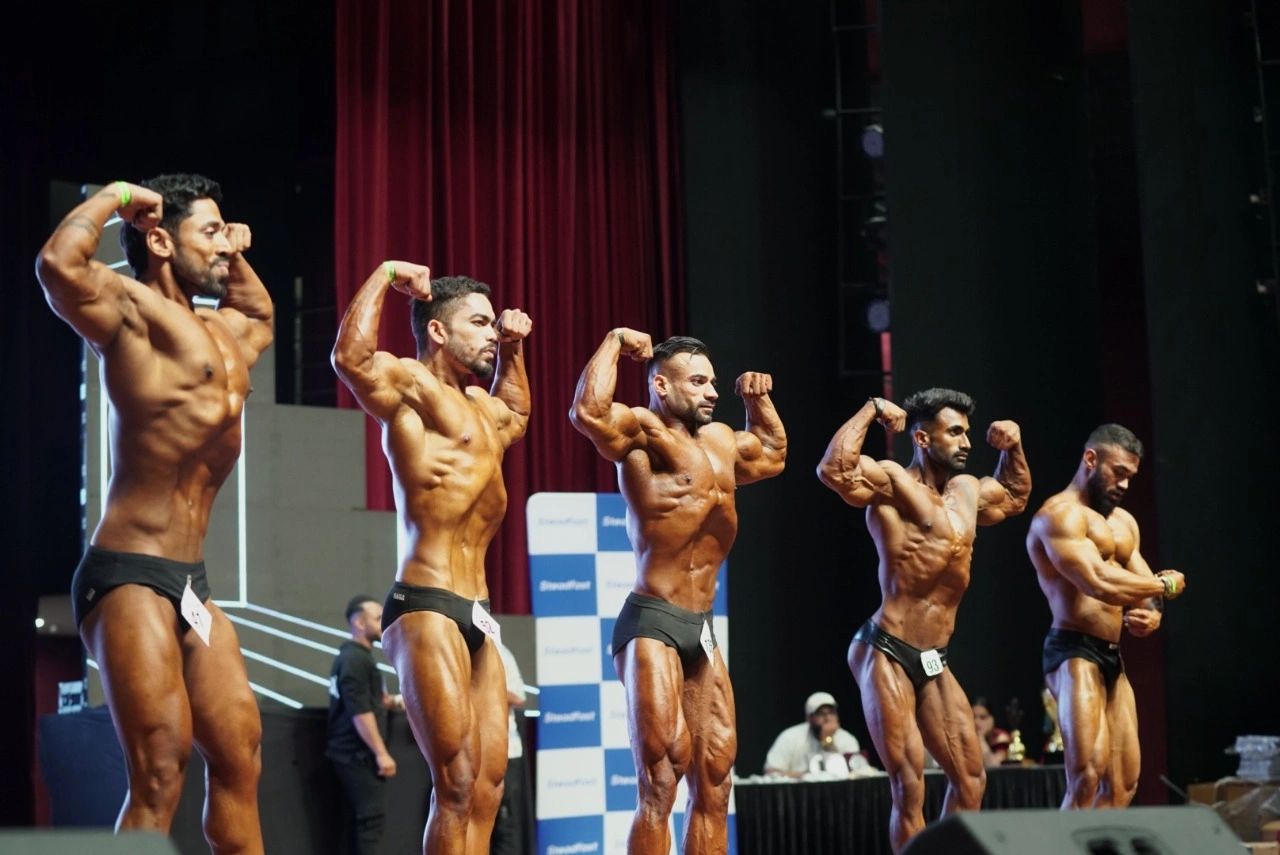Are you passionate about bodybuilding and looking to take your skills to the next level? Amateur bodybuilding competitions may be just what you need! With the rising popularity of these events, it’s a great time to get involved. But where do you start? In this guide to amateur bodybuilding competitions in 2023, we will cover everything you need to know, from understanding the landscape and differences between amateur and professional competitions to preparing for your first competition.
We will also walk you through the registration process, share insights into upcoming events, and provide tips on how to use feedback from judges to improve. Plus, we will discuss the potential career opportunities that lie ahead in the world of bodybuilding. Get ready to hit the stage with confidence!
Understanding the Bodybuilding Landscape in 2023
Types of bodybuilding competitions include men’s physique, women’s physique, and bikini. Judging criteria focus on muscularity, conditioning, symmetry, and presentation. Training and nutrition are key for preparing competitors, with a focus on building muscle mass and reducing body fat. A well-crafted posing routine showcases the physique. Pre-competition preparation involves tanning, hair, makeup, and wardrobe choices.
Amateur vs Professional Competitions: What’s the Difference?
The main difference between amateur and professional competitions is that professional athletes are paid to compete, while amateur athletes are not. This distinction has a number of implications for the way that amateur and professional competitions are organized, the level of play, and the goals of the participants.
Organization
Amateur competitions are typically organized by clubs, schools, or community organizations. They may be held at a local, regional, or national level. Professional competitions, on the other hand, are typically organized by professional leagues or associations. These leagues have a much larger budget than amateur organizations, which allows them to provide higher levels of prize money, travel expenses, and other support to their athletes.
Level of Play
The level of play in professional competitions is generally much higher than in amateur competitions. This is because professional athletes have the time and resources to train full-time. They also have access to better coaching, facilities, and equipment. As a result, professional competitions are often more exciting and unpredictable than amateur competitions.
Goals of Participants
The goals of participants in amateur and professional competitions are also different. Amateur athletes typically compete for the love of the sport and the challenge of competing against other talented athletes. They may also compete to earn scholarships or to improve their chances of being recruited by a professional team. Professional athletes, on the other hand, compete to win prize money and to advance their careers. They may also compete to achieve personal goals, such as winning a championship or breaking a record.
In some sports, there is no clear distinction between amateur and professional status. For example, in golf, there are both amateur and professional tours. However, the professional tour is much more lucrative and prestigious than the amateur tour. As a result, most of the top golfers in the world are professionals.
Ultimately, the decision of whether to compete as an amateur or a professional is a personal one. There are advantages and disadvantages to both approaches. Amateurs may have more freedom to enjoy the sport for the sake of it, while professionals may have the opportunity to achieve greater financial success. The best way to decide which approach is right for you is to consider your own goals and priorities.

How to Prepare for Amateur Bodybuilding Competitions 2023
Here are some tips on how to prepare for amateur bodybuilding competitions in 2023:
- Set realistic goals. How long have you been training? What is your current body fat percentage? What are your strengths and weaknesses? Once you have a good understanding of your starting point, you can set realistic goals for your competition prep.
- Find a coach or mentor. If you are new to bodybuilding, it can be helpful to have a coach or mentor who can guide you through the competition prep process. They can help you develop a training program, create a diet plan, and provide support and motivation.
- Start training and dieting early. It takes time to build muscle and lose fat, so it is important to start training and dieting early. This will give you enough time to make progress and reach your goals.
- Focus on compound exercises. Compound exercises are the best way to build muscle and strength. They work multiple muscle groups at the same time, which is more efficient than isolation exercises.
- Lift heavy weights. If you want to build muscle, you need to lift heavy weights. This will challenge your muscles and force them to grow.
- Eat a high-protein diet. Protein is essential for building and repairing muscle tissue. Make sure to eat plenty of protein-rich foods, such as chicken, fish, eggs, and beans.
- Stay hydrated. It is important to stay hydrated, especially when you are dieting and training hard. Drink plenty of water throughout the day.
- Get enough sleep. Sleep is essential for muscle growth and recovery. Aim for 7-8 hours of sleep per night.
- Practice your posing. Posing is an important part of bodybuilding competitions. You will need to practice your posing routine so that you can perform it smoothly and confidently on stage.
- Stay positive and motivated. Bodybuilding competition prep can be challenging, but it is important to stay positive and motivated. Remember why you started training in the first place, and focus on your goals.
Here is a sample timeline for preparing for an amateur bodybuilding competition in 2023:
- 6-8 months before the competition: Start training and dieting.
- 4-6 months before the competition: Start practicing your posing routine.
- 2-4 months before the competition: Increase your cardio training.
- 1-2 months before the competition: Start cutting calories and fat.
- 1-2 weeks before the competition: Peak your diet and training.
- Competition day: Relax, eat a healthy breakfast, and enjoy the show!
This is just a general timeline, and you may need to adjust it based on your individual goals and circumstances. However, following these tips will help you prepare for your first amateur bodybuilding competition and give you the best chance of success.
Importance of Fitness Regime and Diet
A well-rounded fitness regime and a balanced diet play a vital role in amateur bodybuilding competitions. Fueling muscle growth and reducing body fat requires a diet rich in high protein, low-fat foods. Consistency in following a fitness regime and diet leads to gradual but significant changes over time. To ensure all necessary nutrients, consult a professional trainer or nutritionist for a customized plan based on your goals and body type.
Building Muscle: Techniques and Tips
Consistency and dedication are crucial when it comes to building muscle for bodybuilding competitions. Incorporating a variety of exercises like compound lifts and isolation exercises helps target different muscle groups. Progressive overload, gradually increasing weight and intensity, aids in muscle growth. Proper nutrition with adequate protein intake is essential for muscle recovery and growth. Rest and recovery allow the muscles time to repair and grow.
Registration Process for Amateur Bodybuilding Competitions 2023
To participate in amateur bodybuilding competitions, first, check the eligibility requirements and different categories available. Register online or via mail with the necessary documentation, including proof of age and amateur status. Make sure to pay the registration fees in advance to secure your spot. Attend mandatory athlete meetings and weigh-ins before the competition. Finally, prepare yourself by focusing on proper training, nutrition, and practicing your posing skills.

Eligibility Criteria for Participants
To participate in amateur bodybuilding competitions, participants must meet specific eligibility criteria. They should be amateurs and not have won any professional bodybuilding competitions. Age requirements vary, typically ranging from 18 to 40 years old. Participants are required to pass a drug test to ensure they are not using performance-enhancing substances. Some competitions may also require a certain level of experience in bodybuilding, and there may be height and weight requirements for specific categories.
What to Expect at a Bodybuilding Competition?
Here are some things you can expect at a bodybuilding competition:
- Pre-judging: This is the first round of judging, and it usually takes place in the morning. The competitors will be judged on their symmetry, muscularity, and overall presentation.
- Evening show: This is the second and final round of judging, and it usually takes place in the evening. The competitors will be judged on their posing routine, as well as their symmetry, muscularity, and overall presentation.
- Tanning: Most bodybuilders will get tanned before the competition. This helps to make their muscles look more defined and to create a more even overall appearance.
- Pumping up: Before they go on stage, the competitors will do some exercises to pump up their muscles. This helps to make them look their best and to show off their definition.
- Posing: The competitors will be judged on their posing. They will need to know how to pose their bodies in a way that shows off their muscles and their symmetry.
- Announcements: The winners of each class will be announced at the end of the evening show.
In addition to these things, you can also expect to see a lot of excitement and energy at a bodybuilding competition. The competitors have worked hard to prepare for this day, and they are eager to show off their hard work. The audience is also there to support the competitors, and they create a very enthusiastic atmosphere.
After the Competition: What’s Next?
Once the competition is over, it’s important to take time to celebrate your hard work and achievements. Reflect on your experience and identify areas for improvement. Set new fitness goals for yourself, whether it’s to compete again or focus on personal growth. Consider working with a coach or trainer to continue improving and reaching your goals.
Let’s Sum Up
In conclusion, amateur bodybuilding competitions 2023 have gained immense popularity in recent years. They provide a platform for aspiring bodybuilders to showcase their hard work and dedication. To prepare for your first competition, it is crucial to follow a strict fitness regime and maintain a balanced diet. Building muscle effectively requires proper techniques and tips.
When it comes to registering for a bodybuilding competition, make sure you meet the eligibility criteria and understand the registration process. In 2023, there are several noteworthy events to look out for, offering participants an opportunity to compete at a higher level.
After the competition, take the feedback from judges seriously and use it to improve your skills and physique. Additionally, consider whether there is a potential career in bodybuilding for you. Overall, participating in amateur bodybuilding competitions can be a rewarding experience that helps you grow both physically and mentally.



